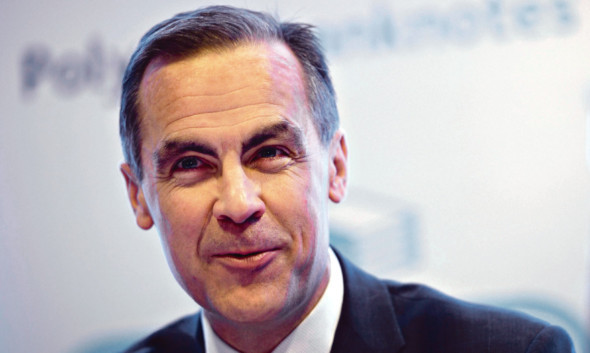
Mark Carney needs to keep politics out of the Bank of England.
The Governor of the Bank of England looks and sounds like he’s just stepped off the set of Mad Men. But the writers of that superior serial about smooth advertising executives would surely have given him better lines than those he came out with last week.
Appearing before the Treasury Select Committee he appeared to criticise Labour plans to rein in the banks. At that point in the week Labour’s policy was only a leak but, such is the nature of the news cycle now, something new can be pelted before it’s even been unveiled.
Carney is Canadian, so he may be unused to the British convention of the top economist in the country keeping out of politics as far as possible. The Tories, of course, were delighted with his intervention.
Remember, the Coalition only came into being because it was claimed that without a stable Government in the aftermath of the inconclusive 2010 election, investors would get the jitters and flee the already devastated economy.
Never mind that the City was only still standing in 2010 because the Government and few would call Gordon Brown’s administration with its constant danger of a coup “stable” propped it up with a few billion quid of taxpayers’ money.
Loyalty counts for little in the financial jungle. So the government was only too happy to point to Carney’s analysis and warn that once again Labour’s plans eventually revealed on Friday and amounting to a plan to expand the Big Five banks to a Big Seven would endanger the economy.
The Opposition struggled to counter this narrative because they are still embarrassed by the way Gordon Brown presided over a crash. But Brown did not cause the crash.
He may have been guilty of failing to fix the roof while the sun was shining but he wasn’t sunbathing either figuratively or literally. He even went on holiday with his family to the seaside, wearing a suit.
During the economic summer Brown was instead attempting to create a weather machine, of the sort the Russians were rumoured to have at the height of the Cold War. But Brown’s economic weather machine was no more potent than those Soviet experiments and, sure enough, when the weather changed the roof caved in.
The weather though was made by the Masters of the Universe in the City who’d been sowing the wind for years and then left the rest of us to reap the financial whirlwind.
Miliband knows that, which is why he wants to put a lid on the City, the bonus culture and the big banks. But he can’t say that for fear of being branded a Gordon Brown apologist, still just about the most toxic tag in politics.
The anti-business badge the Tories are pinning on Miliband, with some success, is one that Labour could turn on the Tories. For all that the Conservatives like to claim they are the party of commerce, there is one issue on which the views of industry are roundly ignored.
George Osborne gave a speech at the start of the week warning the EU it must reform or Britain will leave. There are precious few captains of industry who want the UK to walk away from its biggest trading partner.
The Lord Mayor of London even had to speak up last week to say that it wouldn’t be good for the City to cut ties with Europe.
Lord Mayor is the historic job featured in panto Dick Whittington, as opposed to the Mayor of London, Boris Johnson, who would be more at home in a bedroom farce.
Tory claims that the City must be listened to on one issue reform of the banks, or lack of it if the financial institutions get their way but not on another Britain’s place in Europe is the sort of position that leads to historically low faith in politicians and their trade. Mark Carney’s job is to keep politics out of the Bank of England, not to dabble in it himself.

Enjoy the convenience of having The Sunday Post delivered as a digital ePaper straight to your smartphone, tablet or computer.
Subscribe for only £5.49 a month and enjoy all the benefits of the printed paper as a digital replica.
Subscribe